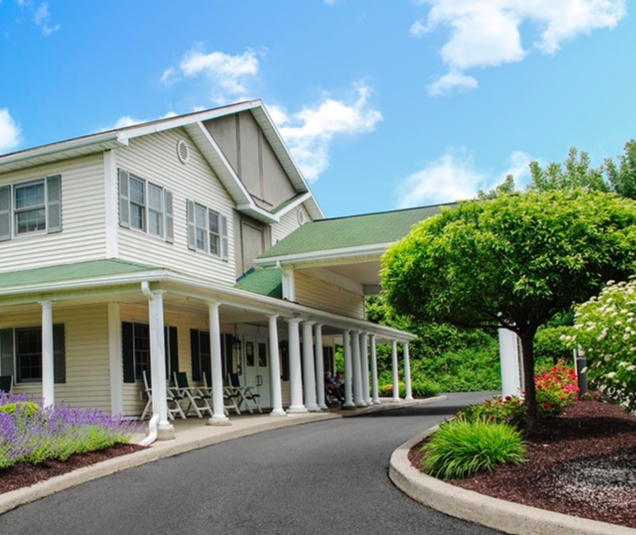Assisted living communities offer support for individuals needing help with daily activities without requiring 24-hour medical care. These communities aim to promote independence and enhance residents’ quality of life while fostering a sense of community.
A common question is whether these communities have nurses on staff, and the answer varies. Many have licensed nurses available 24/7 or on an as-needed basis to provide medical care, administer medications, and monitor health conditions. However, some may only have certified nursing assistants (CNAs), with registered nurses (RNs) visiting periodically to oversee care.
It’s essential to ask about the level of nursing staff and their qualifications when researching assisted living options. Additionally, understanding the types of medical services provided and any associated costs is crucial, as not all communities may be equipped to handle specialized medical needs.
Types of Nursing Staff
Assisted living communities may have different levels of nursing staff, including:
- Licensed practical nurses (LPNs): LPNs have completed a one-year nursing program and hold a license to provide basic medical care, such as administering medications and changing dressings.
- Registered nurses (RNs): RNs have completed a two- or four-year nursing program and have passed the national licensing exam. They can perform more advanced medical tasks, including assessing residents’ health, developing care plans, and administering injections.
- Certified nursing assistants (CNAs): CNAs are not licensed but have received training and certification to assist with daily living activities, such as bathing, dressing, and feeding.
Types of Medical Services
Assisted living communities may offer various medical services depending on their level of nursing staff and capabilities. Some common services include:
- Medication management: This includes administering medications, organizing medication schedules, and ordering refills.
- Health monitoring: Nurses may regularly check vital signs, monitor chronic health conditions, or provide wound care.
- Assistance with daily living activities: CNAs can assist residents with tasks like dressing, bathing, and toileting.
- Memory care services: For those with dementia or Alzheimer’s disease, some communities may offer specialized memory care programs with trained staff to provide support and supervision.
It’s essential to inquire about the specific medical services provided at a potential assisted living community and any associated costs. Some communities may charge additional fees for certain medical services, while others may include them in the overall cost of care. It’s also important to consider how the community handles emergencies and if they have protocols in place for coordinating with outside medical providers.

Collaborating with Outside Medical Providers
Assisted living communities may partner with outside healthcare providers to offer additional medical services or accommodate residents’ specific needs. These partnerships can be beneficial for residents who require specialized care or ongoing treatment for chronic conditions. Some examples of outside medical providers include:
- Primary Care Physicians (PCPs): Residents can continue seeing their PCP or choose a new one within the local area.
- Home health agencies: If a resident requires more frequent skilled nursing care, such as wound care or physical therapy, a home health agency may provide services within the assisted living community.
- Hospice providers: If a resident requires end-of-life care, hospice providers can sometimes offer specialized support and services within the assisted living community.
It’s important to inquire about any partnerships with outside medical providers and their involvement in the care of residents.
Ongoing Communication & Coordination of Care
In addition to collaborating with outside medical providers, assisted living communities should also have systems in place for ongoing communication and coordination of care within the community itself. This includes regular meetings between staff members to discuss any changes in residents’ health status, medication management, and care plans.
Assisted living staff should also have open lines of communication with residents and their families to address any concerns or updates regarding their care needs. Additionally, families should feel welcome to visit their loved ones at any time and be kept informed about their well-being.
This continuous communication and collaboration between all parties involved is essential in promoting the overall health and wellness of residents in assisted living communities. It ensures that all medical, emotional, and social needs are being met in a comprehensive and holistic manner.
Promoting Wellness & Independence
While assisted living communities provide various levels of care, they also prioritize promoting resident wellness and independence. This includes:
- Wellness programs: Many assisted living communities offer a variety of wellness programs such as fitness classes, health education seminars, and recreational activities. These programs can help residents maintain physical and mental well-being.
- Independent living options: Assisted living communities often offer independent living options for residents who do not need assistance with daily tasks but want the amenities and social opportunities of community living.
- Personalized care plans: Each resident in an assisted living community should have a personalized care plan that takes into account their specific needs and preferences. This allows for individualized care that promotes independence while also addressing any potential limitations.
By prioritizing wellness and independence, assisted living communities aim to create a supportive environment where residents can thrive and maintain their quality of life.
Discover Compassionate Care & a Vibrant Community at Peregrine Senior Living
Assisted living communities offer a unique balance between independence and support for older adults who may require assistance with daily tasks or need access to medical care. From personalized care plans to wellness programs, these communities prioritize the overall well-being of their residents while also promoting a sense of community and social connection. Families should feel reassured that their loved ones are receiving comprehensive care in a safe and welcoming environment.
At Peregrine Senior Living, we understand the importance of providing compassionate and quality care for all our residents. Our assisted living communities offer a wide range of services and amenities to support their physical, emotional, and social needs. We believe in promoting independence while also fostering a sense of belonging within our vibrant community. To learn more about our assisted living options, please visit our website or contact us today.












Learn and experience insider tips, considerations and real guidance that only experts can provide in person! ... See MoreSee Less
Thank you to Cheriene from Marquis Home Care for joining us for a corn hole tournament and bringing refreshments! ... See MoreSee Less
You can now find our March activities calendar online.
These calendars are still printed and available throughout the community and are posted.
Click on the link below to view this month’s calendar!
Assisted Living: illst.us/7DY159
Memory Care: illst.us/538D0F ... See MoreSee Less
Dining at our community is about more than what’s on the plate—it’s about connection, community, and the joy of gathering together.
Our talented culinary team crafts meals that are both delicious and nutritious, offering flavors that comfort and inspire.
From themed dinners to chef demonstrations, each meal becomes an opportunity to savor the moment and celebrate life’s simple pleasures. 🍴
peregrineshaker.com/ ... See MoreSee Less
At Peregrine Shaker we are always up for trying something new. This week we started a wine tasting series. We started off with Chardonnay! We learned about how this wine is made and about the grapes that give it the distinct taste. Everyone enjoyed the tasting experience. Which wine should we try next? ... See MoreSee Less
We welcome surprise visits. Our friend Maple Syrup dropped by for a visit today. ... See MoreSee Less
Today we celebrate the caregivers—those whose quiet strength and unwavering compassion bring comfort to so many.
We see the difference caregivers make every day: holding a hand, sharing a smile, or offering reassurance when it’s needed most. 💕
Your dedication reminds us that true care goes beyond tasks—it’s an act of love, patience, and humanity.
Thank you for all you do to make the world a more compassionate place.
peregrineshaker.com/ ... See MoreSee Less